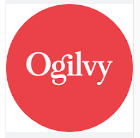Hear about the personal experiences of our industry partners and students

Shyma Jundi, industry partner:
"The students were enthusiastic and dedicated and we loved being able to work with incredible minds and with the cutting edge technology at UCL."
Naomi Wang, former student:
"I would recommend BIX to students who want to work for a corporate instead of doing the research or staying in academia after graduation."
- Hear more from our industry partners
- Fernanda Trevisan, Inizio Evoke, 2023

"The outcomes of this research hold significant relevance and directly impact the practise with our clients. The study was conducted with excellence and robustness, indicating its potential for publication and dissemination at international conferences. Collaborating with UCL and their dedicated team on this academic research has been a remarkable experience. I am sincerely grateful for the opportunity to work with such a talented and committed team. Their expertise and support have been invaluable throughout this research, enriching the entire process."Shyma Jundi, 2023
"The collaboration with UCL was a very useful way to work with academics on exciting projects, collecting data which will inform real life practice. The students were enthusiastic and dedicated and we loved being able to work with incredible minds and with the cutting edge technology at UCL."Julia Terlet, Behaven, 2023
"Collaboration with UCL students as part of the BIX is a great opportunity for us to validate our tools in a scientific and rigorous way and to improve our practices moving forward."Industry partner, 2023
"The collaboration with both the student, [Charmi Shah], and the university supervisor was great. Roles and responsibilities were clearly established at the beginning. The research purposes and methods were collectively agreed, in line with both the student's preferences and the departments' research needs." After completing the Masters', Charmi Shah is now working as a Consulting Analyst at a leading marketing company, also a BIX industry partner. Charmi primarily works in the Behavioural Science team with global FMCG brands, Financial Institutions, etc. to understand consumer behaviour.David Beattie, Ultraleap, 2021
"The student produced high quality work. It was great to collaborate with esteemed researchers from UCL. We had the expected level of access to UCL academic Faculty. We felt that the project was worthwhile and value for money. The benefits were: great collaboration between academic partner and industry; talented and enthusiastic student; ability to complete important work that could not be conducted due to other internal constraints; fostering and transfer of knowledge between partners. We would offer another project. Communication was easy and regular. Meetings were to the point. Progress was steady and noticeable. Outcomes were excellent. Really enjoyed working on this collaboration with the student and Prof. Patrick Haggard."Keith O'Brien, Simply Business, 2020
"We completed two projects with UCL's students. One, how to improve feedback-seeking behaviour; and two, understanding how insurance purchase behaviour leads to greater risk-taking and thus claims. Both projects were run by exceptionally bright students, who navigated moving to working remotely (due to COVID19) and often across countries/time-zones with good diligence and communication. The students were highly motivated, self-directed (where expected), and also enjoyable to work with.
Both the process and the outputs were informative for how we improve our business for both employees and customers; and we are proud that work was recognised in Distinctions for the students that engaged with us...I'd recommend any student or organisation to get involved..."Mike Hughes, Ogilvy, 2020
"Naomi has been great. She has unearthed strong insights into recycling behaviours, and brought some fresh, novel executions for her experiment design. Naomi’s proposed testing is a novel way of testing behaviours within a digital environment, and we can’t wait to see the results."
Jordan Buck, Ogilvy, 2020
"I’ve found Charlotte to be a brilliant student and collaborator. She has brought to the table a great many insightful suggestions, and I’m confident that the end result is going to benefit massively from her hard work and dedication at understanding the literature and nailing down the best route to take the research in."
- Hear more from our students
- Charmi Shah, former MSc Social Cognition: Research and Application student, 2023

Charmi Shah worked with an organisation to reduce the environmental impacts of people’s travel options and eco-labelling on journey planners. After completing the Masters', Charmi went straight into work as a Consulting Analyst at a leading marketing company, also a BIX industry partner. Charmi primarily works in the Behavioural Science team with global FMCG brands, Financial Institutions, etc. to better understand consumer behaviour.Cecilia, former MSc Behaviour Change student, 2023
Cecilia conducted a Qualitative study with one-to-one in-depth interviews with behavioural scientists working in the pro-environmental field. Cecilia said: "[An] opportunity to work with practitioners and see different perspectives across industry and academia. I would recommend doing a BIX project. It's a great opportunity to work with an industry partner in a topic of your interest and to gain greater perspective on the different demands and perspectives of different sectors."Former MSc Cognitive and Decision Sciences student, 2023
This student investigated whether mid-air haptics technology can help increase users' sense of agency over an interface. They conducted an experiment using ultrasound technology, which generates soundwaves that are perceived by skin receptors as gentle vibrations. They said: "It is a fantastic opportunity to work on the project which findings have applications in the real-world context. Collaborating with an organisation, greatly increases the motivation to work on the project and devote more time to it. I was able to showcase my research skills and innovative thinking. I could also display my passion for applied science. It is a perfect experience to talk about during your job interview. It is very likely that it will be a hard and time-consuming project, but it is worth it. Overall, I learnt a lot of new skills."Zhang:, former MSc Social Cognition: Research and Application student, 2023:
This student looked at what influences the likelihood of a) the public trusting a medical signatory, and b) the medical signatory putting their name to a service? (looks at trust from a patient perspective). Zhang said completing a BIX project "...gives you a clear direction about what you would do for your dissertation and relived me from choosing topics. Make sure you really like the project you choose, because it does require a lot of hard work. I really enjoyed having two supervisors from totally different backgrounds, so if one is on holiday, the other is still willing to help, which is really important in the later stages of the dissertation. I will consider doing similar jobs as my industrial supervisor does. Cooperating and communicating with universities is interesting."
Nai-Ching Hsiao, former MSc Human-Computer Interaction student, 2022:
"An excellent opportunity to bridge the gap between academia and the business world, and engage with real-life challenges. During my project, I collaborated with a digital application start-up. My primary objective was to help the company understand how their target users interact with the app and provide design suggestions to improve user engagement. Working on this project allowed me to apply the knowledge I gained at UCL to the business world, lead an independent project, and work with different stakeholders in the business context, gaining more local experience. With expert guidance and support from UCL supervisors, I was able to face real-life business challenges with rigor and proficiency, which significantly increased my confidence in starting my career in the UK after graduating from UCL. I am grateful for this fantastic experience, which has provided me with a clearer understanding of my future career choices. This project also helped me earn a place on the Dean's List of outstanding students."Former student, 2021:
Found the BIX industry project ‘fun, engaging, interesting to work with industry partners’ and would recommend other students to ‘go for it’. Their project used portable non-invasive biometric devices to measure heart rate and EDA on call centre employees and identified whether certain events throughout their working day were more stressful than others. They really enjoyed working in a team. They found the BIX project helpful to their career plans as ‘the topic of stress is very relevant to many aspects of clinical psychology.’Tanith Archibald, former MSc Psychological Sciences student, 2021:
Tanith worked on a BIX industry project with UCL's Prof Joe Devlin, measuring workplace stress with BioStress Lab. You can read more about Tanith's project. This project earnt Tanith a place on the Dean’s List of outstanding students.
Charlotte Walton, former MSc Social Cognition: Research and Application student, 2020
Charlotte's project looked at the effects of food creativity and shopping frequency on food waste. She conducted online surveys using Qualtrics to research this. Charlotte says: "Working with a company provides a lot of opportunities. Not only do you get more funding for your project, but you get to have a real sense of responsibility and understand the relevance of the research you are doing in a real world context. My company supervisor was also super nice and easy to work with. It felt meaningful and exciting to work on a BIX project. If you are potentially interested in starting a career in Behavioural Science, then it's a great opportunity to gain experience and exposure. It's been really exciting to be able to share my research with a wider audience now that it's been completed. Working on a BIX project allowed me to build connections in the company which opened up opportunities such as publishing the research in their Behavioural Science Annual and presenting to one of their clients. It also got me in the loop about an available job, which I interviewed for and ended up getting! Needless to say, I'm so glad that I was able to do a BIX project as it opened up doors for me.”
Naomi Wang, former MSc Social Cognition: Research and Application student, 2020
Naomi’s project looked at creative approaches to promote cup recycling. Naomi says “As an international student, it's a really great experience. I planned to work in a business corporate before I started the master programme, so I chose this enterprise dissertation project to see the application of psychology in the business place. My project put new and subtle behavioural science techniques to the test. The best thing is that I can receive support from two supervisors, and their feedback focused on different aspects. One is more academic and one is more practical. I would recommend BIX to students who want to work for a corporate instead of doing the research or staying in academia after graduation. Anyway, it is a great project for master's student, and thanks for everyone who brings these enterprise opportunities to us :)"Nimisha Parashar, former MSc Social Cognition: Research and Application student, 2020
Nimisha worked on a BIX industry project with Channel 4 and UCL's Prof Lasana Harris. Employing stereotype-inconsistent or -irrelevant information in a marketing campaign may reduce the perceived creativity of the advertisement. Here, we establish a link between stereotype and audiences’ creativity perception. In a pair of online experiments, we asked participants to rate the stereotypicality and creativity of British advertisements, as well as their intention to purchase the advertised product or service. We found a quadratic relationship between advertisement stereotypicality, creativity, and purchase intention such that advertisements perceived as low and high stereotypicality were rated as more creative and had higher purchase intention that medium stereotypicality advertisements. These results highlight the psychological mechanisms that potentially link stereotyping and creativity, as well as the implications for marketing.
Nimisha says “It is an amazing learning experience. I chose a BIX project for an opportunity to work with organisations outside the academic environment. I enjoyed the liberty that I had with working on my own project to make my own decisions. The support from my supervisors, both Industry and Academic, worked well. BIX has helped me to gain industry experience."Pam Dang, former MSc in Social Cognition: Research and Application student, 2020
“For our main research question we tested the effectiveness of two interventions on inducing a desired behavioural outcome (i.e., increased feedback-seeking). We also tested the relationship between feedback-seeking behaviour and various individual-differences factors (e.g. goal orientation and implicit person belief). The project provided a very practical approach to conducting scientific studies. The biggest takeaway lesson from this experience, in my personal opinion, is applying my research skills in an actual organisational setting while managing the difficulties or challenges of a field experiment. This is a great and very useful experience if you are interested in research in non-academic work setting. I enjoyed the responsibilities that come with working for an actual organisation. I also enjoyed working with and learning from my corporate supervisor. The project reassured my interest in this career path and equipped me with more necessary and relevant skills. My corporate supervisor was very helpful and supportive not only in helping me with the project but also in giving advice about career choices. Overall, it was a great experience.”
Doulos Lee, former MSc Cognitive and Decision Sciences student, 2020
"Great opportunity to combine what you have learnt from the course and work on a practical problem from the industry. My project was on drivers of moral hazard. The topic was interesting and it was an opportunity to learn from someone plugged into industry and not to mention contribute directly to something more applied in nature. It was the best of both worlds, with academic rigour from UCL supervisor combined
with how to answer industry/real life related questions/challenges."
 Close
Close


